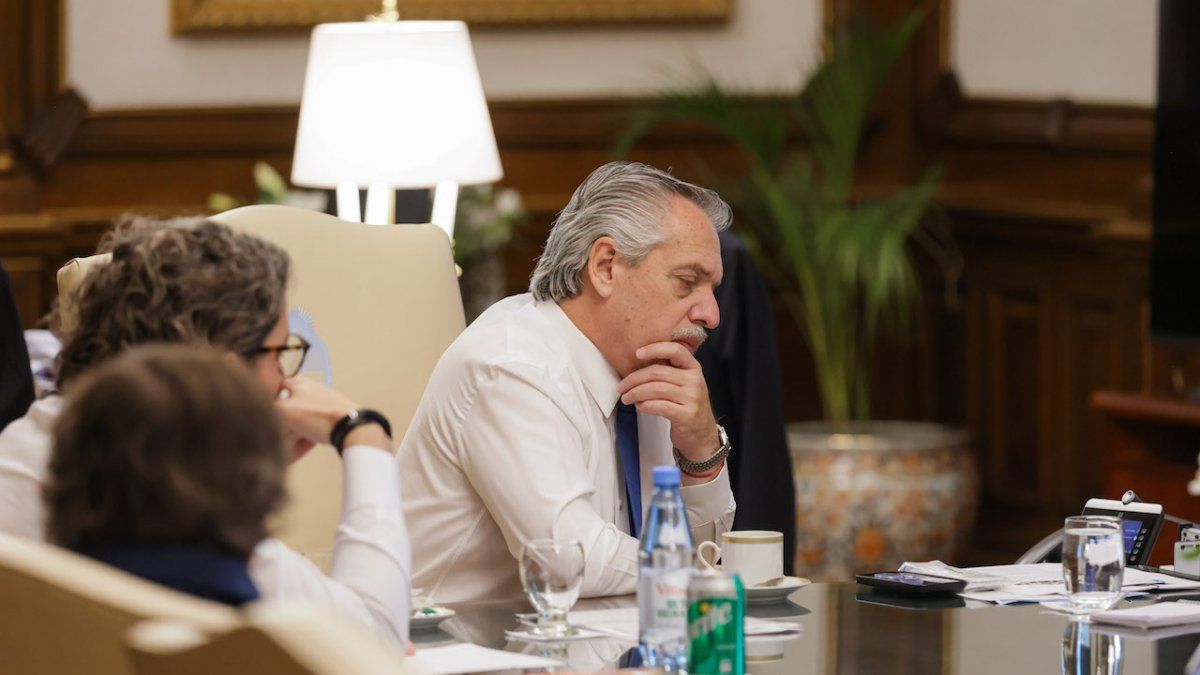The problem is that the guidelines with the IMF he is evidencing serious setbacks in order to be honest. To begin with, but not the only thing, the fiscal accounts do not finish accommodating what was promised. Neither the inflation guideline, nor the accumulated reserves and much less, the monetary issue records and depth of the debt market in pesos. That is to say, Guzmán left with the photo of the second quarter “accomplished” through last minute swerves, but a second later, in the next photo, everything returned to a path of non-compliance from which it will be very difficult to get out. In fact, the brand new restrictions of the Government took the financial dollar above $250 and the blue at $239. The question that will come back again and again is simple: Is this package of measures enough for the Government to start accumulating reserves? In just one week of harsh restrictions on imports, he managed to comply with the IMF in the accumulation of reserves, although on Friday the BCRA had to give up some US$190 million. Did Pesce even use some dollars from the swap with China to pay for imports arriving from that country? Everything makes you think so. Was that the starting point to close the payment of imports? It is probable.
It is not unthinkable that the Government should negotiate with the IMF what is coming. In other words, the IMF will ask the Government for some pledge in exchange for forgiving the breaches and making the corresponding disbursements. Unification of the exchange front? Cuts in public spending? Specific definitions of the universe that must pay full rate in public services? Reforms? If this is what the IMF will ask for, it is likely that the government will launch it sooner.
In the meantime, there will be work to do. Not only stitching together the short circuits offered by the public management of the different government portfolios, but also redirecting the main economic policies, with special mention of the energy issue. Because if something will be evident with the departure of Guzmán and the change in the government architecture, it is that the IMF program and the consequent economic plan underway seem to have failed not only in the goal set, but also in the impact it has in broad sectors of society.
There are several elements. The news is that, despite the restrictions in the last week, June would have closed with a figure close to US $ 9,000 million. It goes without saying that only two registers (energy) explain almost 40% of the increase in imports, so the operation set up to manage the shortage will have to work hard to generate enough impact.
As this scheme progresses, although the guidelines for the first semester were met, as expected, the IMF program has turned out to be highly inflationary. In other words, the IMF produces more inflation in Argentina, not less. Can a government that considers itself attentive to the socioeconomic problems of millions of Argentines advance in policies that generate greater uncertainties in the daily lives of people with lower incomes? That is a more political than economic decision.
Still, problems abound. Some time ago, institutional investors from abroad gave the thumb down to the possibility that Argentine sovereign bonds are paid in a timely manner (that is why the country-risk exceeds unusual levels). To this we must add a scheme where the BCRA and the Treasury issue debt tied to inflation and offer increasingly higher rates and this mechanism begins to generate mistrust, to the point that some of the holders of that debt asked to get out of the investment against the issuance of the BCRA.
Although the scenario is very complex and it would be impossible to include each one of the points, suffice it to say that what the future holds will be less than discretionary for the new cabinet. In other words, it will be necessary to decide, first, whether to maintain the agreement with the IMF or to look for an alternative path, renegotiation or postponement of compliance. Sorry and the like. This is so because although the Government met the photo as of June 30 of the goal in BCRA reserves agreed with the IMF in the second semester, elements survive that give for analysis. Let us mention two more. The first, as a result of the 24% appreciation of the level of the Multilateral Real Exchange Rate carried out by the government of Alberto Fernández, there is already an almost 10% gap with respect to the commitment assumed with the IMF to maintain the levels of exchange competitiveness set in December 2021. That is, if he wants to comply with Georgieva, the devaluation should be accelerated. The second element is more shocking: if you think about it carefully, the program signed with the IMF has already ceased to function as the government’s macroeconomic guarantor. This is one of the reasons why the country risk rises and the prices of sovereign bonds fall.
In the background, the ghost that runs through the Casa Rosada is that of a deeper discussion. What type of economic matrix will be consolidated in Argentina? Will it be from now on an economy marked by the commercialization of raw materials? Will Argentina depend on its external front to be able to move forward? How can you transform that into a more egalitarian and inclusive model?
Source: Ambito
David William is a talented author who has made a name for himself in the world of writing. He is a professional author who writes on a wide range of topics, from general interest to opinion news. David is currently working as a writer at 24 hours worlds where he brings his unique perspective and in-depth research to his articles, making them both informative and engaging.




